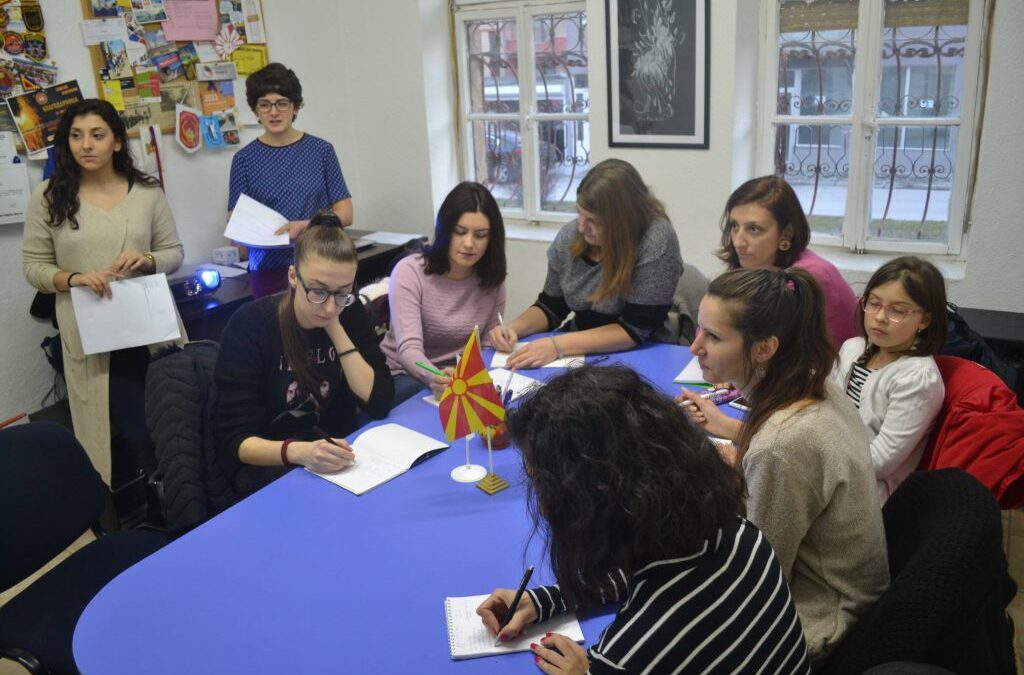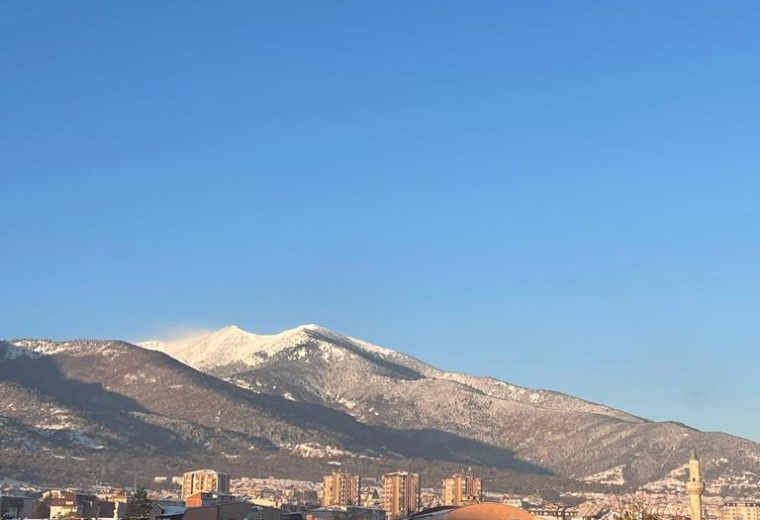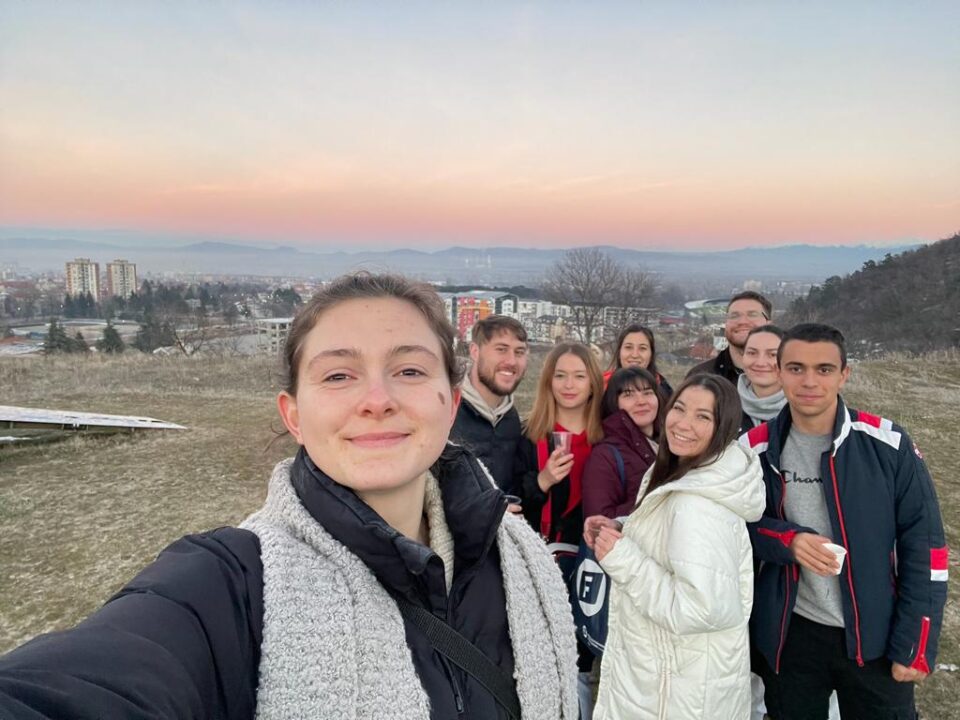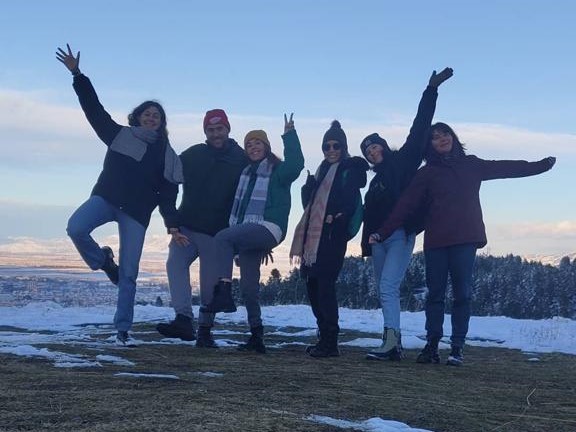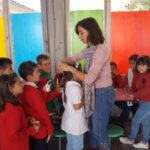
Find Yourself
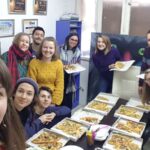
For the good times
My name is Beatriz Viegas; I’m 23 years old, and I’m from Lisbon, Portugal. I decided to take advantage of this short-term EVS opportunity between the sending and hosting organizations, Teatro Metaphora (Madeira) and SFERA (Macedonia), for several reasons. First of all, I’d already had this inner curiosity, and for some time I’d been searching for European Voluntary Services opportunities, but as I was working and studying simultaneously, I could not achieve this goal. In December I finished my master’s degree, and in January my employment contract ended, so I decided that it was the perfect timing to participate in an EVS program. As such, I found the short-term EVS project “Green Raid” and decided to take a chance and come to Macedonia. For me, a short-term EVS of 2 months was perfect, because I know that we can do a long-term EVS if we first participate in a short-term one, and as I’d never had this kind of experience, I thought it was logical to do a short-term program for the first time. Besides, I was always curious about the Balkan style of life, but I never had the chance to come to the Balkan countries, as traveling there from Portugal is quite expensive. Alongside the timing, the time period, and the place, I must also highlight the theme, which I thought would be useful for me in the future, as I previously hadn’t had any background related to firefighting issues.
From my point of view, an EVS experience is a tool created by the EU that can be enjoyed by European youth as well as young people that belong to countries with special agreements with the European Union. That is, in my opinion, one of the most inclusive tools that we can use if we want to spend a long or short period of time abroad.
As this is my first EVS, I would say that I had high expectations. I wanted to understand life in Macedonia, the people, and the culture, absorb every little detail, and compare Macedonia to my own country, Portugal. I wanted to get to know the different perspectives concerning certain issues and compare them with the other cultures I already knew.
I arrived in Bitola, joining Belinda and Diva, the rest of the SFERA organization team, Milcho, Imma, and Mende, along with all the other volunteers that I can’t name. Later, we met Shahrzad, a lovely Turkish girl who integrated into another short-term EVS program under SFERA. Moreover, the SFERA organization also connected us with volunteers from other organizations, which made us feel more integrated.
Our working schedule was fixed from 10:00 a.m. to 15:00 p.m.; however, flexibility was one of the main aspects of the organization. During the two months, besides the weekly evaluation meeting, we have attended and participated in the organization of several activities, such as SFERA art attack, SFERA floorball, informational workshops, movie nights, game nights, intercultural nights, cleaning action days, sensibilization actions for the prevention of natural disasters, and, most importantly, we gave Portuguese classes to members of the local community. In exchange, we have also received Macedonian lessons that turned out to be really useful for communicating with the community. We’ve also had the opportunity to create a survival kit for the next generations of volunteers that are coming to Bitola.
I could say that I have developed several types of skills, namely organizational and social skills. Organizational skills, due to all the workshops organized, improved my time management and creativity skills in order to create the flyers, organize the information, and teach the interested people that showed up for our activities. social skills because we had to deal with young people and also interact with people with different attitudes and views, which required us to take on the role of facilitator.
Due to our schedule flexibility, we’ve had the chance to visit several places in Macedonia with the help of the SFERA organization. When I was here, I visited the capital, Skopje, as well as Ohrid, Struga, Prilep, and Bitola (including the surroundings). Besides Macedonia, we have travelled to other cities located in other countries, such as Sofia, in Bulgaria; Athens and Thessaloniki, in Greece; and finally, Limassol, in Cyprus.
From the places I had the opportunity to visit, the first thing I should point out is that Macedonia, as a non-EU country, has certain physical aspects that largely differ from Portugal, such as the roads, the bus signs, and even the buildings.
Besides that, there are some other aspects we can point out that largely differ from the reality that we have been living in, for example, the food. The food is the integration and combination of several dishes specific to other cultures, such as Greek or Turkish, but my favorite was a vegetable spread called Ajvar. Normally it’s used like butter, to eat with bread or to add cheese to it, and it’s a really enjoyable snack.
Socially, I can say that most people (usually older people) are a little shy because they don’t speak English well, making communication with foreigners more difficult. I could say that Macedonia is a seasonal country because during the summer, it welcomes foreigners to key tourist centers, but during the winter, fewer foreigners visit the country due to its cold weather. Macedonia has a beautiful nature that can be explored in the summer when the snow has already melted.
Besides that, I can point out that, culturally, Macedonia has a patriarchal family structure, as issues like divorce are considered taboo. What Macedonia and Portugal have in common is coffee culture. People here start their coffee time at 13:00, and you can find streets filled with smiley faces. The streets are filled with lots of different cafes, and you can find a whole range of coffee styles.
The young people in Bitola have a peculiarity that I found to be very strange. Despite the fact that Macedonia is quite pop-oriented and you can find the best music in clubs, here the people don’t dance. The most they do is move their shoulders, but that’s it.
Finally, I should point out one of the strangest beliefs Macedonian people have: promaja.
Basically, Macedonian people believe that you can be seriously ill and promaja will get you if you open the windows of your car or house or do some regular daily actions, like going to the street with your hair wet. The problem is that they cannot specify the symptoms, as this is an urban myth taken out of proportion, even though it is still funny to see scared faces when you actually open a window in your house.
So far, I must say that I’m pretty much enjoying my experience here; it has been so great to take in all that surrounds me. Until now I’ve enjoyed the best of both worlds, living in Macedonia while at the same time enjoying the company of the other Portuguese volunteers. This way, I’m both away from and near home simultaneously.
I would recommend this enriching experience to everyone as it allows you to enter into contact with different people, develop new skills, and get a sense of what you need to improve in yourself. My recommendation is for you to choose and think well about the place, about the duration, and about the subject. From my point of view, these are the crucial points when choosing an EVS program.
And last but not least, I just have to thank the SFERA team for all the support that it has provided us since the beginning.
Beatriz Viegas

